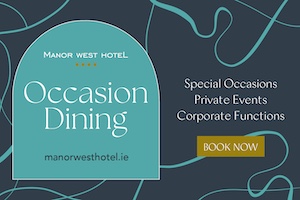 Know Your Rights has been compiled by Kerry Citizens Information Service which provides a free and confidential service to the public…
Know Your Rights has been compiled by Kerry Citizens Information Service which provides a free and confidential service to the public…
You dispose of an asset when you sell it, give it as a gift, exchange it or get compensation or insurance for it.
If you make a profit or gain when you dispose of an asset, you are liable to pay Capital Gains Tax (CGT) on the chargeable gain.
The chargeable gain is usually the difference between the price you paid for the asset and the price you disposed of it for. You can deduct allowable expenses such as the cost of acquiring and disposing of the asset.
When you dispose of an asset, you must file a tax return for CGT by 31 October of the following year.
Continued below…
Although you may file your return the following year, you must pay the Capital Gains Tax in the same year as you dispose of the asset, unless the disposal is in December.
Capital gains that are exempt
Transfers of assets between spouses and civil partners are exempt from Capital Gains Tax.
Transfers of assets between spouses and civil partners who are separated are exempt from Capital Gains Tax if they are made under a Separation Agreement or a court order.
The transfer of a site from parent to child is exempt if it is to build the child’s principal private residence but the land must be less than one acre and have a value of €500,000 or less.
There is no Capital Gains Tax on assets that are passed on death. The assets are treated as if the person who died got the assets at the same value they have on the date of death.
If a personal representative disposes of the assets, they are responsible for any gains between the date of the person’s death and the date of disposal.
Principal Private Residence Relief
You may be exempt from CGT If you dispose of a property you own that you lived in as your only or main residence. This relief may also apply if you dispose of a property that you provided for free to a widowed parent or incapacitated relative to use as their sole residence.
There are some restrictions to Principal Private Residence Relief, including that you can only claim the relief for:
• The part of the house that you used as your home
• The time you lived in the property, with some exceptions for work or health reasons
• The value of the property as you currently use it, rather than for development potential
Continued below…
Other exemptions
Other exemptions from Capital Gains Tax include gains from:
• Betting, lotteries, sweepstakes and prize bonds
• Bonuses payable under the National Instalments Savings Schemes
• Government stocks
• Certain life assurance policies
• Moveable property, if the gain is €2,540 or less
• Animals
• Private motor cars
• If you dispose of land or buildings you acquired between 7 December 2011 and 31 December 2014, you can get relief from CGT in certain cases.
Rate and payment of Capital Gains Tax
The standard rate of Capital Gains Tax is 33% of the chargeable gain you make.
A rate of 40% can apply to the disposal of certain foreign life assurance policies and units in offshore funds. For certain windfall gains the windfall gains rate of tax (pdf) is 80%.
Deductions
You can deduct allowable expenses from the chargeable gain, including:
• Money you spent that adds value to the asset
• Costs to acquire and dispose of the asset (for example solicitor fees)
• You may also be able to deduct an allowable loss you made in the same tax year.
When to pay CGT
The tax year is divided into two periods:
• An ‘initial period’ from 1 January to 30 November
• A ‘later period’ from 1 December to 31 December
For disposals in the initial period CGT payments are due by 15 December in the same tax year. CGT for disposals in the later period are due by 31 January in the following tax year.
For example, if you dispose of an asset in the period January to November 2022 you must pay the Capital Gains Tax due to Revenue before 15 December 2022. If you dispose of an asset in December 2022, the Capital Gains Tax will be due on 31 January 2023.
How to pay Capital Gains Tax
If you are registered for CGT, you must pay your CGT online using Revenue Online Service (ROS) or myAccount. If you are not registered for CGT, you must register for CGT and then make a payment using ROS or myAccount.
How to Register
You can register for CGT:
• If you have a tax registration number, by sending a request through MyEnquiries
• If you have never been registered for tax, by completing Form TR1 (or FORM TR1 FT for self-assessment).
How to file a tax return for capital gains
You must file a tax return on all disposals. When you dispose of an asset, you must file a return by 31 October of the following year. Though you may file your return the following year, you must pay the Capital Gains Tax in the same year as the disposal of the asset, unless you dispose of the asset in December.
If you assess yourself for tax purposes (self-assessment) you should make a tax return on Form 11 .
If you are a PAYE taxpayer you should make a return on Form 12. Trusts and Estates should make the return on Form 1 . If you are not required to make an income tax return you must send a CG1 Form to Revenue.
You can use ROS to file your Income Tax Return (Form 11), Form 1 or Form CT1. You can post the Form CG1 or Income Tax Return (Form 12) to your Revenue office. Forms are available online or you can contact your local Citizens Information Centre.
• If you need further information about any of the issues raised here or you have other questions, you can call a member of the local Citizens Information Service in Kerry on 0818 07 7860. They will be happy to assist you and if necessary arrange an appointment for you.
Kerry HELPLINE 0818 07 7860
Monday to Friday from 10am -4pm. Alternatively you can email on tralee@citinfo.ie or log on to www.citizensinformation.ie
The National Phone Service is available on 0818 07 4000 Monday to Friday 9am – 8pm.














